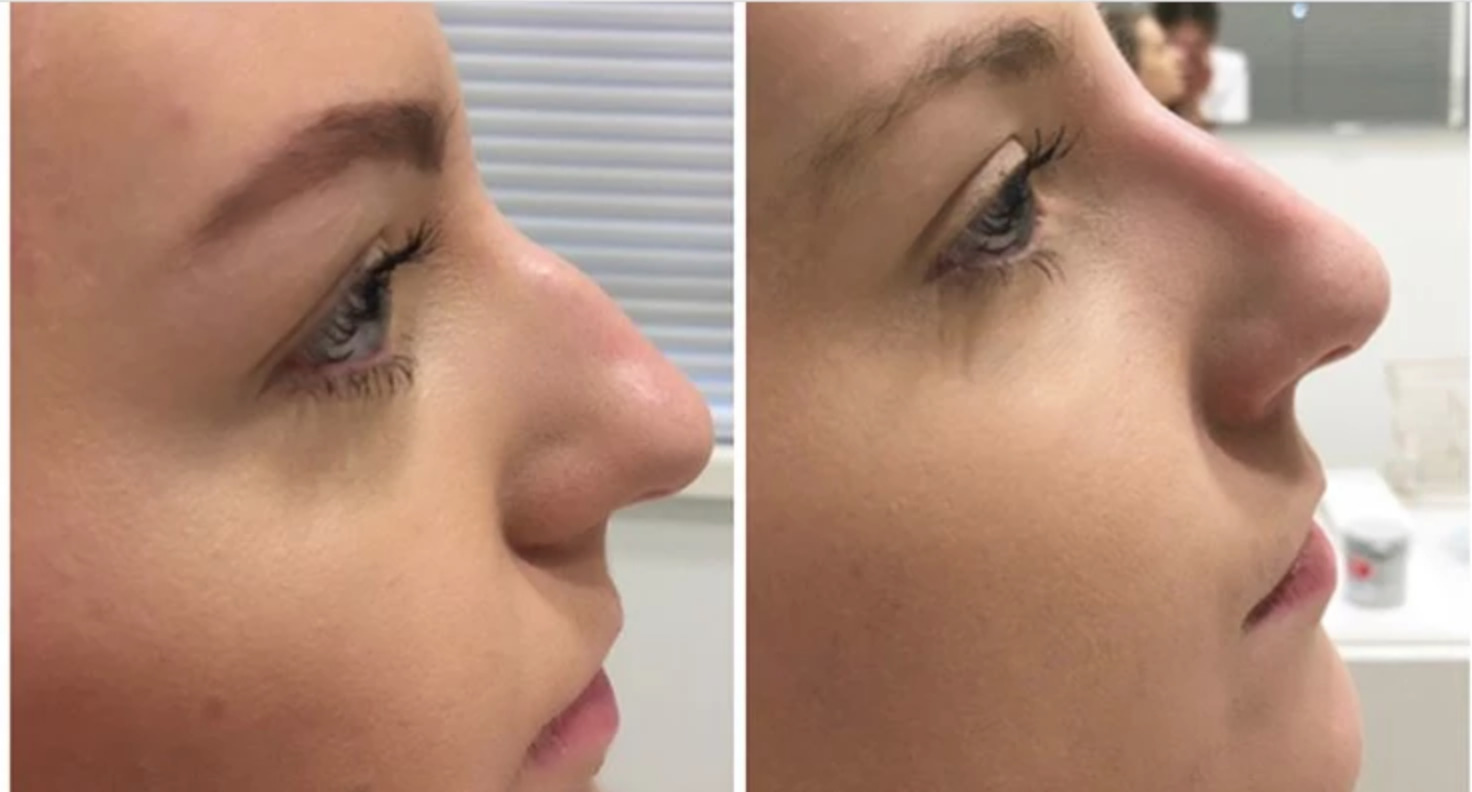How To Reduce Nose Swelling(2023Guide)

How To Reduce Nose Swelling: A swollen nose may be brought on by a number of conditions, including rhinoplasty, pregnancy, allergic reactions, face injuries, and broken noses. Fortunately, a swollen nose is not a dangerous ailment, despite the fact that it may sometimes hurt and be a bit awkward. It takes just a little time and is quite simple to reduce nose edema. To reduce the swelling, try applying ice to the swollen regions. Also, stay away from anything that irritates your nose. Make an appointment with your doctor to have them examine your nose if the swelling persists. Enough Info

Read Also: How To Deal With Anxiety(2023)
FAQs & Answers
1, How long will swell last after rhinoplasty?
Within the first week following surgery, swelling will be at its worst; however, by day 10, it should have diminished. But for many months or perhaps a year after your operation, there may still be a minor amount of swelling brought on by fluid retention. If you’re not totally satisfied with your nose job, it’s best to wait up to a year to observe the final outcome before having any more surgery since this swelling is extremely modest and unlikely to be seen by anybody else. How To Stop Bleeding (2023Home Remedies)
2, Will a swollen nose return to normal?
Without a fracture, swelling and bruising of the outer nose are frequent. It could be misinterpreted as a broken nose. In 4 to 5 days, the edema will be gone. The nose’s shape will thereafter seem typical.
3, Is swollen nose serious?
If it goes away by itself: A minor nasal swelling that goes down by itself is usually not dangerous. If you also have a fever: Especially if you also have a significant swelling in your nose that is accompanied by redness, discomfort, and warmth and does not appear to be going away, you should visit a doctor.
Relieving Pain Quickly
For a period of 10 to 15 minutes, place an ice pack on your nose
5–6 ice cubes should be added to a damp towel. Next, press the ice pack firmly on the swollen area of your nose while applying mild pressure to keep it in place. If you press too firmly, your nose could hurt or get more damaged. The ice’s coolness will make the area less swollen. After 10 to 15 minutes, take the ice pack off.
- If you’d rather use a plastic ice pack instead of a washcloth, you may get one at a drugstore. Before usage, place it in the freezer for three to four hours.
- Holding ice cubes up to your nose directly might induce frostbite or cause them to cling to the skin.
Read Also: How to Build Healthy Bones (Top Strategies: 2023)
For 1-2 days, use the ice pack four times each day
Hold the ice pack to your nose once every four hours if you are awake for the whole 16-hour day. For instance, use the ice pack at 9 am, 1 pm, 5 pm, and 9 pm. Use the ice pack for the next 24 hours if your nose is still puffy after 24 hours. How To Dispose Of Helium Tank(2023)
- More frequent use of the ice pack won’t help reduce swelling.
- The discomfort from the accident or rhinoplasty will also be lessened if you press the ice pack on your nose.
Every 4-6 hours, take an over-the-counter pain medicine
NSAID painkillers, such as Ibuprofen and Advil, can lessen discomfort from a swollen nose while also reducing swelling. [3] Obeying the instructions listed on the medication’s label is very important since taking too much of an OTC pain reliever might harm your body, particularly your stomach.
- Don’t take more painkillers than the bottle instructs. Avoid consuming more than 3,000 mg of the majority of OTC pain medications per day. [4] This amounts to 4 doses of the drug, on average.
While you are sleeping, keep your head raised
It will be possible to get the blood and other fluids out of your enlarged nose by placing one or two additional cushions beneath your head. After a nap or a night’s sleep, your nose will feel less sore and the swelling will have gone down. How To Manifest Someone To Be Obsessed With You(2023)
- If your head is not raised while you sleep, you might wake up with a hurting, aching, or swollen nose.
Read Also: How to Have a Healthy Brain( Requirements)
Stay Hydrated
Drinking a lot of water helps speed up the process of reducing edema and assists your body flush out toxins. Keep hydrated and steer clear of caffeinated beverages. A high-sodium diet might cause fluid retention, so you should be mindful of your salt consumption. Don’t salt your meals, and stay away from salty snacks.
Breathing in steam
Inhaling steam may aid in maintaining the mucous membranes’ moisture. This is crucial in the winter or other cooler climates. This could facilitate nasal drainage and lessen the feelings of congestion. Showering in really hot water and inhaling the steam may help clear sinuses and reduce discomfort. A humidifier may be used for the same purpose as well. How To Get Wrinkles Out Of Leather(Step–by–Step)
Avoiding Irritants and Draining Sinuses
Any allergens that make your nose swell should be avoided
Avoid the allergen if it is the source of your allergies if it is not a seasonal allergy. Nasal edema may result from certain cosmetic product allergies, such as those to face creams, lotions, or soaps. If this is the case, stop utilizing these items. If you have a pet allergy, stay away from visiting friends who own animals.
Avoid substances that make your nose itchy and inflamed
Your nose’s mucous membranes may enlarge due to air pollution and smoke from cigarettes (and other tobacco products). On days with high pollution levels, remain inside as much as you can and steer clear of smoke-filled areas.
- If you can’t remain indoors on days with a lot of pollution, cover your mouth and nose with a bandana or surgical mask.
To get rid of irritants, rinse your nose with salt water
The inside membranes of your nose are probably enlarged if you’re having trouble breathing through it. In order to get irritants out of your nose, buy a nose-rinsing pot from your neighborhood drugstore and use it as directed. Whatever triggers the swelling, you may get rid of them by washing your nasal passages with saline water. How To Relieve Tooth-Ache From Sinus pressure
- Rhinitis is the medical name for an enlargement of the nose. While the mucous membranes of your nostrils are frequently the only part of your nose to expand, severe rhinitis may enlarge the whole nose.
Read Also: How To Be Healthy And Active
Limit your consumption of processed foods and salt
Reduce the amount of table salt you use on a daily basis and concentrate on eating complete, healthful foods that are low in sodium. Your body may retain water and bloat up if you consume too much salt and unhealthy processed meals. If your nose swells during pregnancy, cutting down on salt is particularly helpful since some of the other methods may not be able to do so.
- Tinned vegetables, American cheese, morning cereals, microwave-ready dinners, and processed meats are examples of processed foods.
Throughout the day, consume less caffeine
Your body retains water as a result of the caffeine included in beverages like coffee, cola, and tea. Some of this swelling in your nose may happen if you’re pregnant or have just undergone a rhinoplasty. Due to the fact that sweets can encourage your body to retain water, drinking sugary caffeinated beverages, particularly soda, may make the edema worse. How To Break The Cycle Of Performance Anxiety
- Cut down to 1-2 cups if you regularly consume 3–4 cups of coffee or soda in the morning and afternoon.
Avoid using supplements, alcohol, and drugs
In the two weeks before your operation, as well as thereafter, stop taking any vitamins or other treatments and prescriptions since they may influence your blood pressure, circulation, and healing.
- Avoid using ibuprofen or other anti-inflammatory medications to treat pain or decrease swelling. These drugs could actually make the bleeding worse and make the irritation worse.
- As a diuretic, alcohol may result in dehydration. It should be avoided until your recovery is complete and your post-rhinoplasty edema has subsided.
Conclusion
To reduce noise swelling, you can apply a cold compress to the area, which can help reduce inflammation. You should also avoid picking your nose or rubbing it, as this may make the swelling worse. Additionally, nasal sprays and decongestants may help reduce swelling as well. Finally, if the swelling is due to an underlying medical condition such as allergies or sinusitis, it is important to seek medical treatment and follow your doctor’s instructions. How To Connect Generator To House Without Transfer Switch
Read Also: How To Be Healthy And Active




